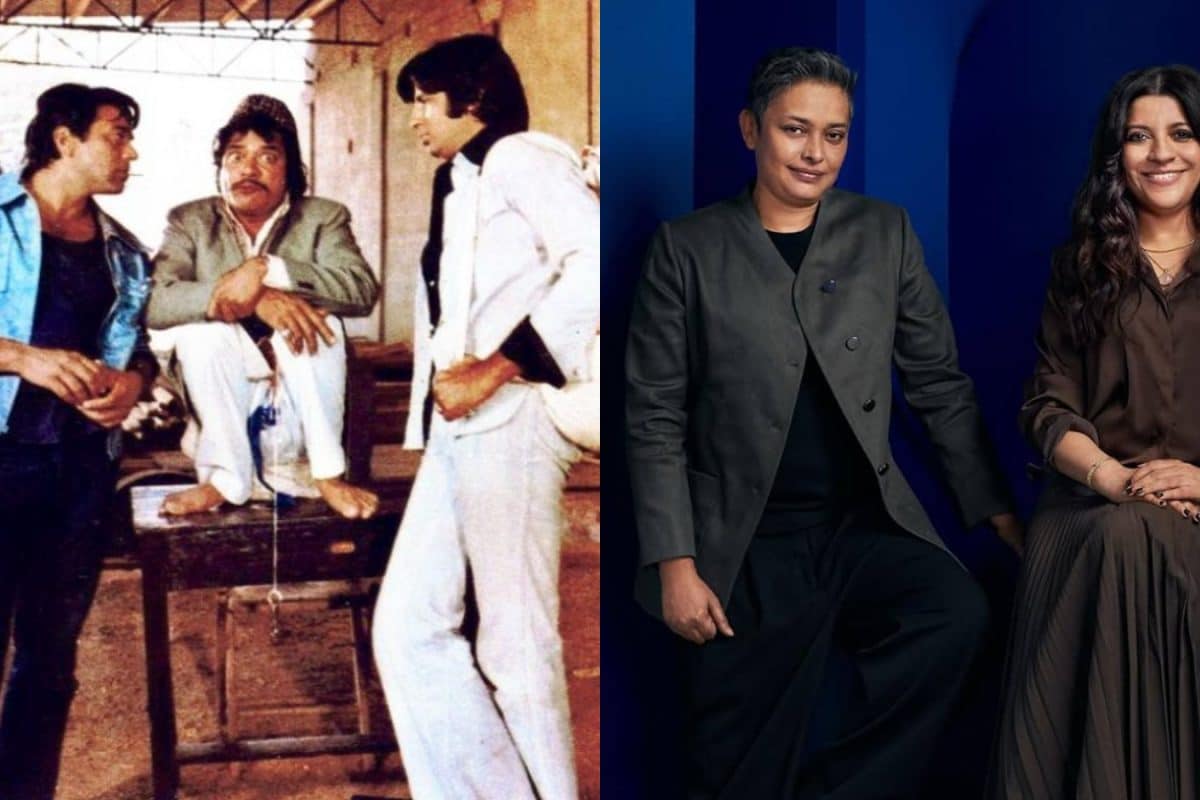

As the iconic film Sholay celebrates its 50th anniversary, the movie continues to hold a special place in Indian cinema and in the hearts of its viewers. Its impact goes far beyond box office numbers or critical acclaim as it created a cultural phenomenon, uniting generations with its themes of friendship, loyalty, sacrifice, and justice. On the film's 50th anniversary, filmmakers Zoya Akhtar and Reema Kagti share their memories and insights on the movie.
Zoya Akhtar, born to Javed Akhtar, revealed her father's reaction to Nasir Shaikh, who gained popularity for his parody films of Salim-Javed's movies like Sholay and Shaan. She said that her father was "charmed and impressed" with Nasir, who, despite lacking equipment, built an industry by creating low-budget spoofs.
Reema Kagti fondly recalls how Amitabh Bachchan became the "ultimate hero" for her generation because of Sholay. She remembers wanting to watch the film repeatedly and acknowledges the significant impact of Salim-Javed's films.
Sholay, directed by Ramesh Sippy, was released on August 15, 1975, coinciding with India's Independence Day. Despite initial lackluster reviews, the film gained momentum through positive word-of-mouth, eventually becoming the highest-grossing Indian film of all time upon its release. It was shot in the rugged landscapes of Ramanagara, Karnataka, which became an integral part of the film's identity.
The film featured a powerful ensemble cast, including Amitabh Bachchan as Jai, Dharmendra as Veeru, Sanjeev Kumar as Thakur, Hema Malini as Basanti, Jaya Bhaduri as Radha, and Amjad Khan as the unforgettable Gabbar Singh. The characters became cultural icons, and the dialogues turned into everyday phrases.
Sholay introduced Indian audiences to a new kind of storytelling and set a new benchmark for action films in Hindi cinema. The movie's elaborate action sequences, elevated the action genre to new heights and inspired filmmakers to create action-packed narratives, often focusing on revenge, friendship, and moral dilemmas. The success of Sholay also gave rise to a new wave of action films known as the 'Curry Western' or 'Dacoit Western' genre.
Even today, dialogues like "Kitne aadmi the?" ("How many men were there?") and "Basanti, in kutto ke saamne mat naachna" ("Basanti, don't dance in front of these dogs") are instantly recognized across the country. The film's music, composed by R.D. Burman, remains evergreen, with songs like "Yeh Dosti" and "Mehbooba Mehbooba" still loved and played.
Sholay was also a technical achievement for its time, as one of the first Indian films to be shot in 70mm with stereophonic sound, providing audiences with a richer cinematic experience. The film broke records for continuous showings in many theaters across India and was also an overseas success in the Soviet Union. In 1999, BBC India declared the film the 'Film of the Millennium'.
Hema Malini, who played Basanti, admitted that none of the cast members foresaw the film's massive impact and lasting influence. She stated that while remakes are possible, the original's impact can never be replicated. Sholay has inspired countless remakes, parodies, and advertisements, with Gabbar's dialogues and Jai-Veeru's camaraderie adapted across various media. Apparel and lifestyle brands have also incorporated Sholay-inspired graphics and slogans, demonstrating the film's lasting cultural impact.